Benefits Of Low Carb Diet Weight Loss

The complete guide to ketosis
- What is ketosis?
- Weight loss & health benefits
- Ketosis vs. ketoacidosis
- How to get into ketosis
- Protein and ketosis
- Optimal ketosis
- How to know you're in ketosis
- Side effects & potential dangers
Ketosis is a metabolic state in which your body uses fat as its main energy source.
Normally, the body uses glucose, or sugar, as its primary fuel. When carb intake is very low, your liver produces lots of ketones, which are fat-like compounds that your brain and other organs can use in place of glucose.
Being in ketosis may help you feel less hungry, promote weight loss, and possibly provide other benefits.
Read on to learn all you need to know about ketosis, including tips for successfully getting into ketosis and staying there.
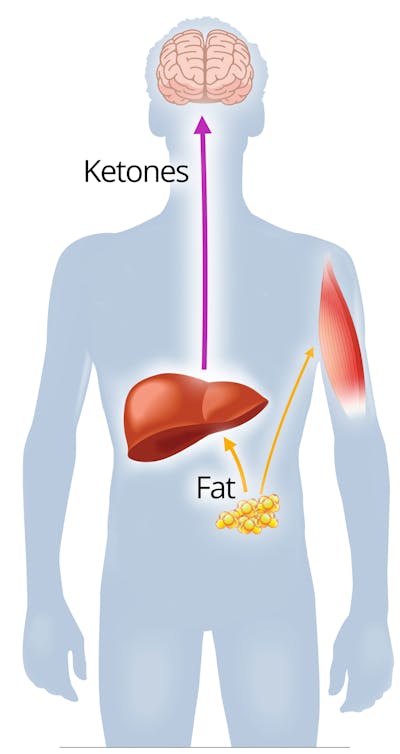
1. What is ketosis?
Ketosis is a metabolic state in which your body uses fat and ketones rather than glucose (sugar) as its main fuel source.
Glucose is stored in your liver and released as needed for energy. However, after carb intake has been extremely low for one to two days, these glucose stores become depleted.1 Your liver can make some glucose from amino acids, glycerol, and lactate via a process known as gluconeogenesis, but not nearly enough to meet all the needs of your brain, which requires a constant fuel supply.2
Fortunately, ketosis can provide you, and especially your brain, with an alternative source of energy.
Ketones, or ketone bodies, are made by your liver from fat that you eat as well as from your own body fat. The three ketone bodies are beta-hydroxybutyrate (BHB), acetoacetate, and acetone (although acetone is technically a breakdown product of acetoacetate).3
Your liver produces ketones on a regular basis even when eating a higher-carb diet. This happens mainly overnight while you sleep but only in tiny amounts. However, when glucose and insulin levels decrease, such as on a carb-restricted diet, the liver ramps up its production of ketones in order to provide energy for your brain.
Once the level of ketones in your blood reaches a certain threshold, you are considered to be in nutritional ketosis. According to leading ketogenic diet researchers Dr. Steve Phinney and Dr. Jeff Volek, the threshold for nutritional ketosis is a minimum of 0.5 mmol/L of BHB (the ketone body measured in blood).4
Although both fasting and a keto diet will allow you to achieve ketosis, only a keto diet is sustainable over long periods of time. In fact, it appears to be a healthy way to eat that people can potentially follow indefinitely.5
-
MEMBERS ONLY

-

-
MEMBERS ONLY

-
MEMBERS ONLY

-
MEMBERS ONLY

-
MEMBERS ONLY
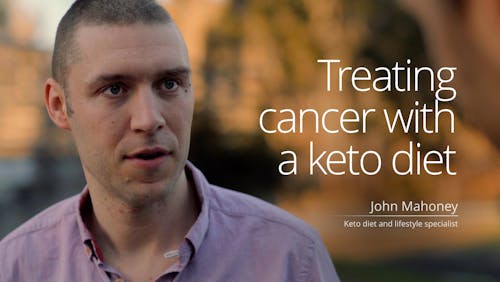
-

-

-
MEMBERS ONLY

-
MEMBERS ONLY

-
MEMBERS ONLY

-
MEMBERS ONLY
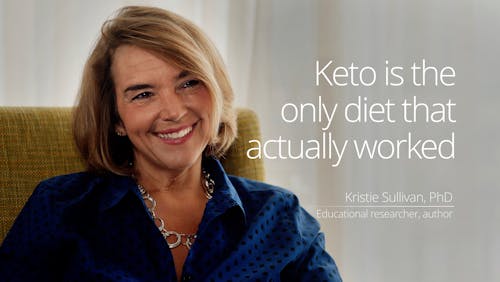
-
MEMBERS ONLY
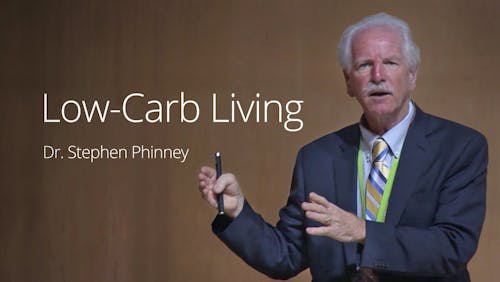
-
MEMBERS ONLY

-

-
MEMBERS ONLY

-

-
MEMBERS ONLY

-
MEMBERS ONLY

-
MEMBERS ONLY

-
MEMBERS ONLY
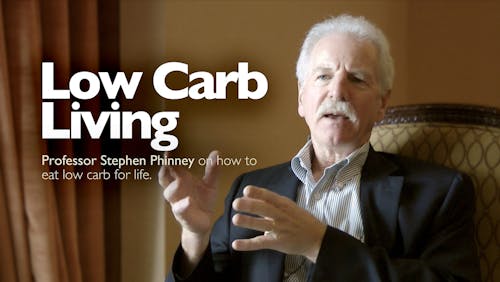
-
MEMBERS ONLY

-
MEMBERS ONLY

-
MEMBERS ONLY
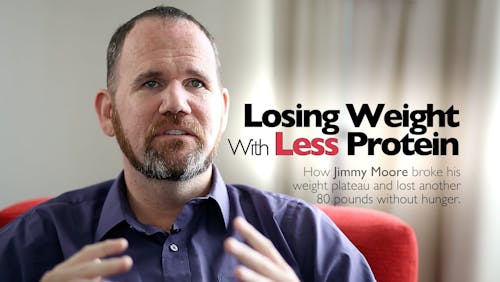
Does the brain need carbs?
There's a long-standing yet misguided belief that carbs are necessary for proper brain function. In fact, if you ask some dietitians how many carbs you should eat, they'll likely respond that you need a minimum of 130 grams per day to ensure that your brain has a steady supply of glucose.
However, this isn't the case. In fact, your brain will remain healthy and functional even if you don't eat any carbs at all.
Although it's true that your brain has high energy demands and requires some glucose, ketones can provide about 70% of the brain's needed fuel. The liver provides the remainder of needed energy in the form of glucose, which is made by gluconeogenesis (literally "making new glucose").6
This system allowed our hunter-gatherer ancestors to go for long periods without eating because they had access to a fuel source at all times: stored body fat.
Being in ketosis doesn't have any adverse effects on brain function. On the contrary, many people have reported that that they feel sharper mentally when they're in ketosis.7
Food for thought: Does the brain need carbs?
2. Benefits of ketosis
In addition to providing a sustainable energy source, ketones – and in particular BHB – may help reduce inflammation and oxidative stress, which are believed to play a role in the development of many chronic diseases.8
Indeed, there are several established benefits and potential benefits of being in nutritional ketosis.
Established benefits:
- Appetite regulation: One of the first things people often notice when they're in ketosis is that they aren't hungry as often. In fact, research has shown that being in ketosis suppresses appetite.9 Studies also show a decrease in ghrelin, the so-called "hunger hormone." 10
- Weight loss: Many people naturally eat less when they restrict carbs and are allowed as much fat and protein as they need to feel full. Because ketogenic diets suppress appetite, decrease insulin levels, and increase fat burning, it isn't surprising that they've been shown to either outperform or be equivalent to other diets intended for weight loss.11
- Reversal of diabetes and prediabetes: 12 In people with type 2 diabetes or prediabetes, being in ketosis can help normalize blood sugar and improve insulin sensitivity, potentially leading to the discontinuation of diabetes medication.13
- Potentially enhanced athletic performance: Ketosis may provide an extremely long-lasting fuel supply during sustained exercise in both high-level and recreational athletes.14
- Seizure management: Maintaining ketosis with the classical ketogenic diet or less stringent modified Atkins diet (MAD) has been proven effective for controlling epilepsy in both children and adults who don't respond to anti-seizure medication.15
There is also exciting early research suggesting that ketosis may be beneficial for many other conditions, such as reducing the frequency and severity of migraine headaches, reversing PCOS, perhaps enhancing conventional brain cancer therapies, possibly slowing down the progression of Alzheimer's disease, along with potentially helping people live longer, healthier lives. Although higher quality research is needed to confirm these effects, much of the early research is very encouraging.
3. Nutritional ketosis vs. ketoacidosis
Nutritional ketosis and diabetic ketoacidosis are entirely different conditions. While nutritional ketosis is safe and beneficial for health, ketoacidosis is a medical emergency.16
Unfortunately, many healthcare professionals don't really understand the distinction between the two.
Ketoacidosis occurs mainly in people with type 1 diabetes if they aren't getting enough insulin to meet their needs. In diabetic ketoacidosis (DKA), blood sugar and ketones rise to dangerous levels, which disrupts the blood's delicate acid-base balance.17
In nutritional ketosis, BHB levels typically remain below 5 mmol/L. However, people in diabetic ketoacidosis often have BHB levels of 10 mmol/L or above, which is directly related to their inability to produce insulin.18
This graph shows the vast difference in the amount of ketones in the blood between ketosis and ketoacidosis:19
Other people who can potentially go into ketoacidosis are those with type 2 diabetes who take medications known as SGLT-2 inhibitors, such as empagliflozin, canagliflozin, dapagliflozin, and ertugliflozin.20
Also, in rare cases, women who don't have diabetes can develop ketoacidosis while breastfeeding.21
However, for most people capable of producing insulin, it's nearly impossible to go into ketoacidosis.
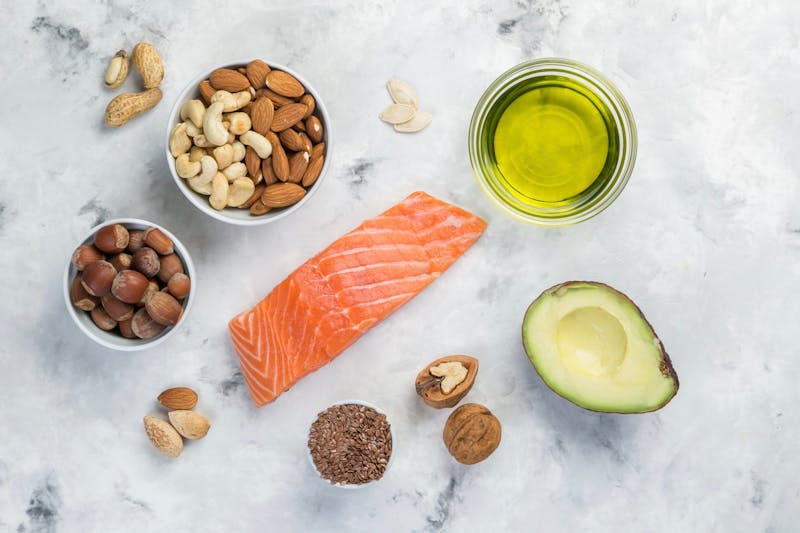
4. Tips for getting into ketosis
There are a number of ways you can get into nutritional ketosis safely and effectively.
- Reduce daily net carb intake to less than 20 grams: Although it's possible that you may not need to be this strict, eating fewer than 20 grams of net carbs every day virtually guarantees that you'll achieve nutritional ketosis, and is likely the only advice you will need.22 What does 20 grams of carbs look like? Use our visual guide to find out, or simply try our keto recipes and meal plans that limit carbs to less than 20 grams per day.
- Try intermittent fasting: Going for 16-18 hours without eating may help you get into ketosis more quickly.23 This is easy to do by simply skipping breakfast or dinner, which may feel very natural on an appetite-suppressing keto diet.
- Don't fear fat: Although the main key is reducing carbs, adding calories from fat and protein can help you make the transition to fat burning with less hunger, especially when you are just getting started.24 As you progress on your low-carb journey, it may help to gradually lower your fat intake to ensure you are burning your body fat stores. This doesn't mean you should eat a low fat diet. It simply means you may not have to purposefully add extra fat when you don't need the extra calories.
- Cook with coconut oil: In addition to being a natural fat that remains stable at high heat, coconut oil contains medium-chain fatty acids that can boost ketone production and may also have other benefits.25 While it is not a requirement for weight loss, if you are interested in raising your ketones for other reasons, coconut oil can help.
- Exercise, if possible: During the transition into ketosis, you may not have enough energy to engage in vigorous physical activity. However, simply going for a brisk walk may help you get into ketosis more easily.26
Even more tips for how to get into ketosis on a keto diet
Supplements not required
Note what's not on the list above: you do not need expensive supplements, like exogenous ketones or MCT oil (medium-chain triglycerides). These supplements will likely not help you lose weight or reverse disease. At least there's no evidence for that.27

Ketone supplements do not lower insulin or blood sugar and don't increase fat burning.28 It's hard to believe that they would have any direct benefits for weight loss or type 2 diabetes reversal.29
What these ketone supplements might do is improve mental and physical performance for a short time.30 To the best of our knowledge, this potential is also unproven. They do raise blood levels of ketones, an effect that can last anywhere from one to a few hours.
We're not saying don't buy these supplements. Perhaps you want to try them for yourself, and see how they make you feel. But you don't need them to be successful on a keto diet or to get into ketosis. Here's our big test of keto supplements:
Exogenous ketone supplements: Do they work?
5. Protein's effect on ketosis
Although getting sufficient protein on any diet is important for preventing muscle loss, many questions have been raised about protein's impact on ketone levels.
During digestion, protein is broken down into individual amino acids, which triggers the release of insulin. Although the amount of insulin needed to transport these amino acids into muscles is small, when large amounts of protein are consumed, the rise in insulin might reduce ketone production to some extent.
For this reason, ketogenic diets for epilepsy are restricted in protein as well as carbs, which ensures that ketone levels remain elevated at all times.
However, protein's effect on ketosis seems to be highly individualized.31
For example, when Diet Doctor's Bjarte Bakke conducted several "n of 1" experiments to see how much protein he could eat and still remain in ketosis, he found that keeping net carb intake below 20 grams per day was what ultimately mattered regardless of his protein intake.
Clinical experience would suggest that others are likely to have the same results as Bjarte.
If you want to stay in ketosis and still eat plenty of protein and are concerned about potential negative effects, it might be a good idea to conduct your own n of 1 experiments in order to determine your personal protein threshold. It may be higher than you think.
Read more about protein on a ketogenic diet
6. What is optimal ketosis?
Getting into ketosis on a ketogenic diet involves a broad range, and you can achieve different degrees of ketosis. The term "optimal" ketosis is frequently used, but it is poorly defined. For instance, those treating seizures or Alzheimer's disease may benefit from targeting a ketone level above 1.5 mmol/L, whereas for losing weight or improving blood sugar the degree of elevation may not matter at all. The numbers below refer to values when testing blood ketone levels.32
- Below 0.5 mmol/l is not considered "ketosis," although a value of, say, 0.2 demonstrates that you're getting close. At this level, you may not be at your maximum fat-burning zone.
- Between 0.5 – 3 mmol/l is nutritional ketosis. You'll likely be getting a good effect on your appetite and metabolic improvements.33
- Around 1.5 – 3 mmol/l is called "optimal" ketosis by some. However, the concept of optimal ketosis is controversial, and it's unclear if it offers any substantial benefits over the 0.5-1.5 level. Exceptions could be treating seizures or those interested in maximum mental and physical performance gains.34
- Over 3 mmol/l is higher than necessary. It will probably achieve neither better nor worse results than being at the 1.5–3 level.35 Higher numbers can also sometimes mean that you're not getting enough food ("starvation ketosis").36 In people with type 1 diabetes, ketone levels over 3.0 mmol/L can be caused by a severe lack of insulin that requires urgent medical attention.37
- Over 8–10 mmol/l: It's normally impossible to get to this level just by eating a keto diet. It means that something is wrong. The most common cause by far is type 1 diabetes, with a severe lack of insulin. Symptoms include feeling very sick with nausea, vomiting, abdominal pain and confusion. The possible end result, ketoacidosis, may be fatal and requires immediate medical care.
7. Signs that you are in ketosis
There are several signs that suggest you're in ketosis, although measuring your ketones is the only objective way to verify it. Here are the most common signs and symptoms:
- Dry mouth or a metallic taste in the mouth.
- Increased thirst and more frequent urination.
- "Keto breath" or "fruity breath," which may be more apparent to others than yourself. Learn more
- Initial fatigue, followed by an increase in energy.
- Decrease in appetite and food intake (one of the more welcome side effects!).
Measuring ketones
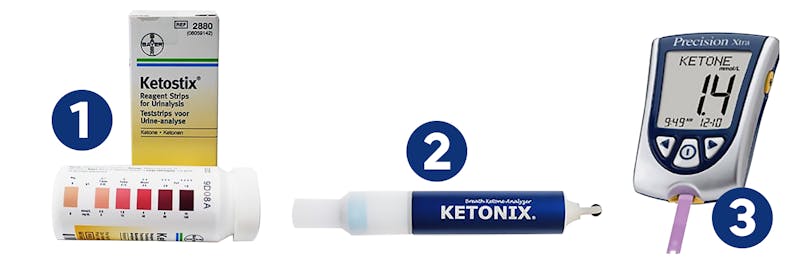
There are three ways to measure ketones, which all come with pros and cons. For a detailed comparison, see our full guide to the best way to test ketones.
For a shorter version, keep reading below. Note that we have no affiliations with any of the brands mentioned here.38
- Urine strips
- Breath ketone analyzers
- Blood ketone meter
1. Urine strips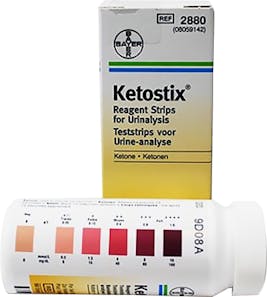
Urine strips are the simplest and cheapest way to measure ketosis. It is the first option for most beginners on a keto diet.
Dip the strip in your urine, and 15 seconds later the color change will show you the presence of ketones.39 If you get a high reading (a dark purple color), you'll know that you're in ketosis.
2. Breath-ketone analyzers
 Breath-ketone analyzers are a simple way to measure ketones.41 At $79 and up they are more expensive than urine strips. But they are cheaper than blood-ketone meters in the long run, as they are reusable any number of times.
Breath-ketone analyzers are a simple way to measure ketones.41 At $79 and up they are more expensive than urine strips. But they are cheaper than blood-ketone meters in the long run, as they are reusable any number of times.
These analyzers vary in their specific results. Some older models do not give you a precise ketone level; rather, they provide a color code for the general level. Whereas other, newer models, report a specific number or level.
3. Blood-ketone meters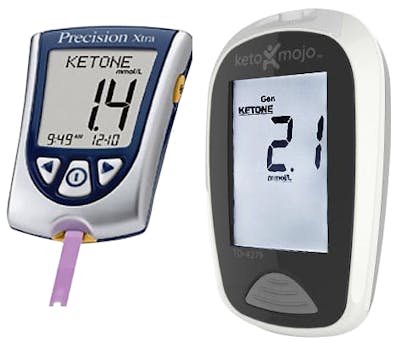
Blood-ketone meters show the exact and current level of ketones in your blood.42 They are the gold standard method for measuring your level of ketosis on a ketogenic diet. They used to be quite expensive, but prices have come down significantly over the years.43
What if you're not in ketosis?
If you're on a keto diet but aren't seeing any signs or symptoms of being in ketosis, here are a few strategies that may help:
- Track your carb intake. While we don't recommend counting or tracking calories, it can be helpful to log your carb intake to make sure you're truly eating less than 20 grams of carbs. Use an online site or app, such as Cronometer, Senza, Carb manager, and others.
- Test blood ketones in the late morning or afternoon. Blood and urine ketones vary throughout the day, as well as from person to person.44 Many people find that their blood ketone levels are usually lowest right after waking up.45 Try testing later on, preferably a few hours after eating. Even if you're only in ketosis for a portion of the day, you're still getting some benefits, as discussed in this talk by Dr. Steve Phinney: Achieving and maintaining nutritional ketosis.
- Try to be patient. Although some people get into ketosis relatively quickly, it may take others a while.46 Unfortunately, people who are insulin resistant often seem to have a longer journey. Put in a solid month of consistent keto eating, and try to ramp up your physical activity, if possible. Within four weeks, you should definitely be in ketosis and experiencing its benefits.
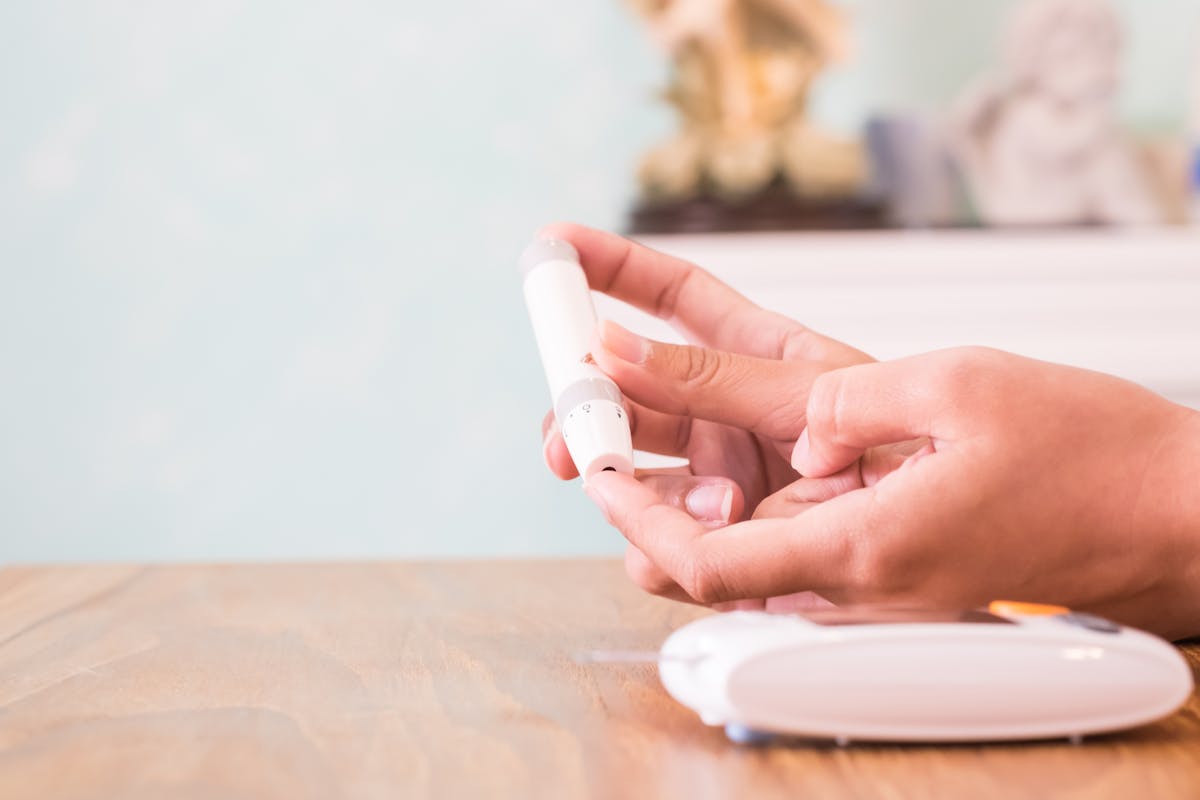
Which is the best ketone meter on the market?
GuideWith a blood ketone meter, you can test for blood levels of ketones. Here's our review of the top options.
8. Side effects, fears and potential dangers
Side effects typically happen within the first few days of starting a ketogenic diet and include headache, fatigue, lightheadedness, irritability, cramps, and constipation. These are known collectively as the "keto flu," which can be remedied by managing fluids and electrolytes, among other things. Read more about the keto flu.
Is being in ketosis safe for everyone?
Being in ketosis is safe for most people, and it can provide many health benefits, including weight loss and reduction of blood glucose and insulin levels, to name a few.
However, certain individuals should only follow a ketogenic diet under medical supervision, and others are best off avoiding it altogether.
Conditions that require medical supervision and monitoring during ketosis:47
- Type 1 diabetes
- Type 2 diabetes on insulin or oral diabetes medications
- High blood pressure on medication
- Liver, heart, or kidney disease
- History of gastric bypass surgery
- Pregnancy
Conditions for which ketosis should be avoided:
- Breastfeeding women
- Individuals with rare metabolic conditions that are typically diagnosed in childhood, such as enzyme deficiencies that interfere with the body's ability to make and use ketones or to properly digest fats.48
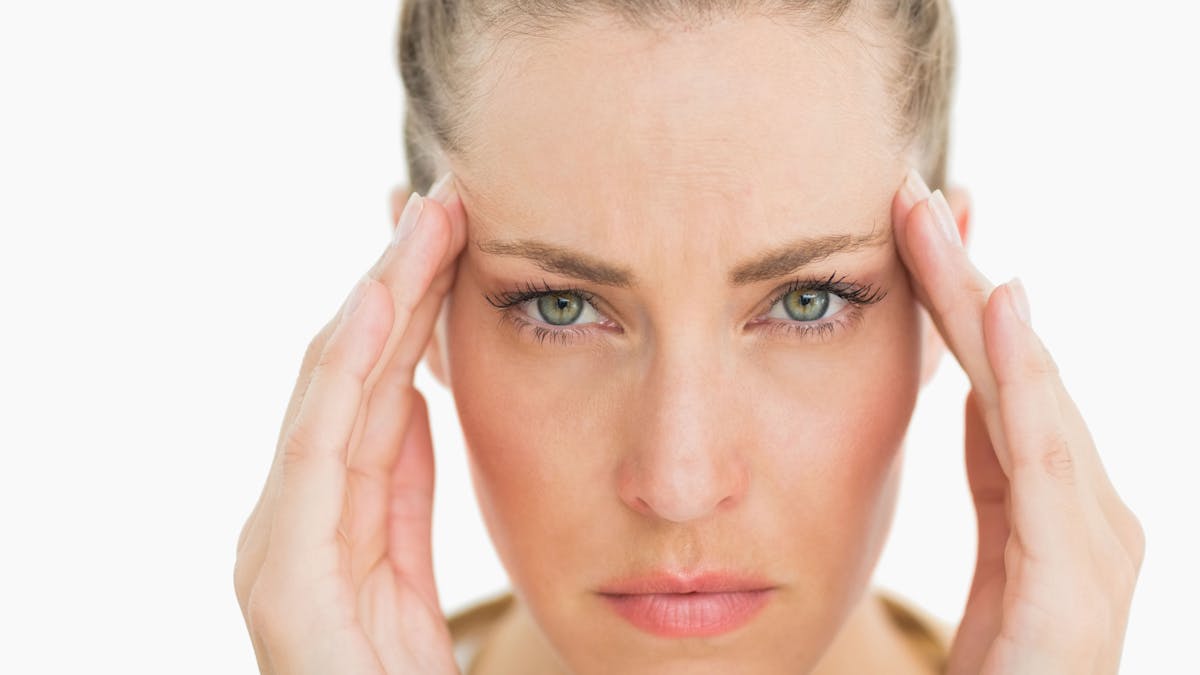
The keto flu, other keto side effects, and how to cure them
GuideDuring the first few days of a keto diet, you can experience the keto flu. You can feel tired, have a headache, and be easily annoyed. Learn all about the keto flu and how to avoid it here.
Recommended viewing
The case for nutritional ketosis
Nutritional ketosis: metabolic regulation and signaling
A year of self-tracking in nutritional ketosis
/ Franziska Spritzler, RD
Benefits Of Low Carb Diet Weight Loss
Source: https://www.dietdoctor.com/low-carb/ketosis

Komentar :
Posting Komentar